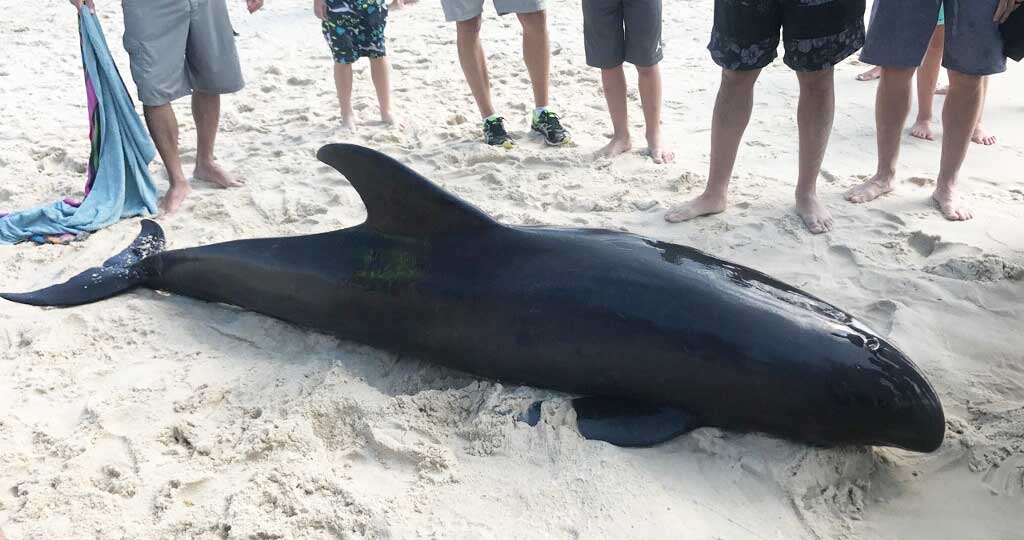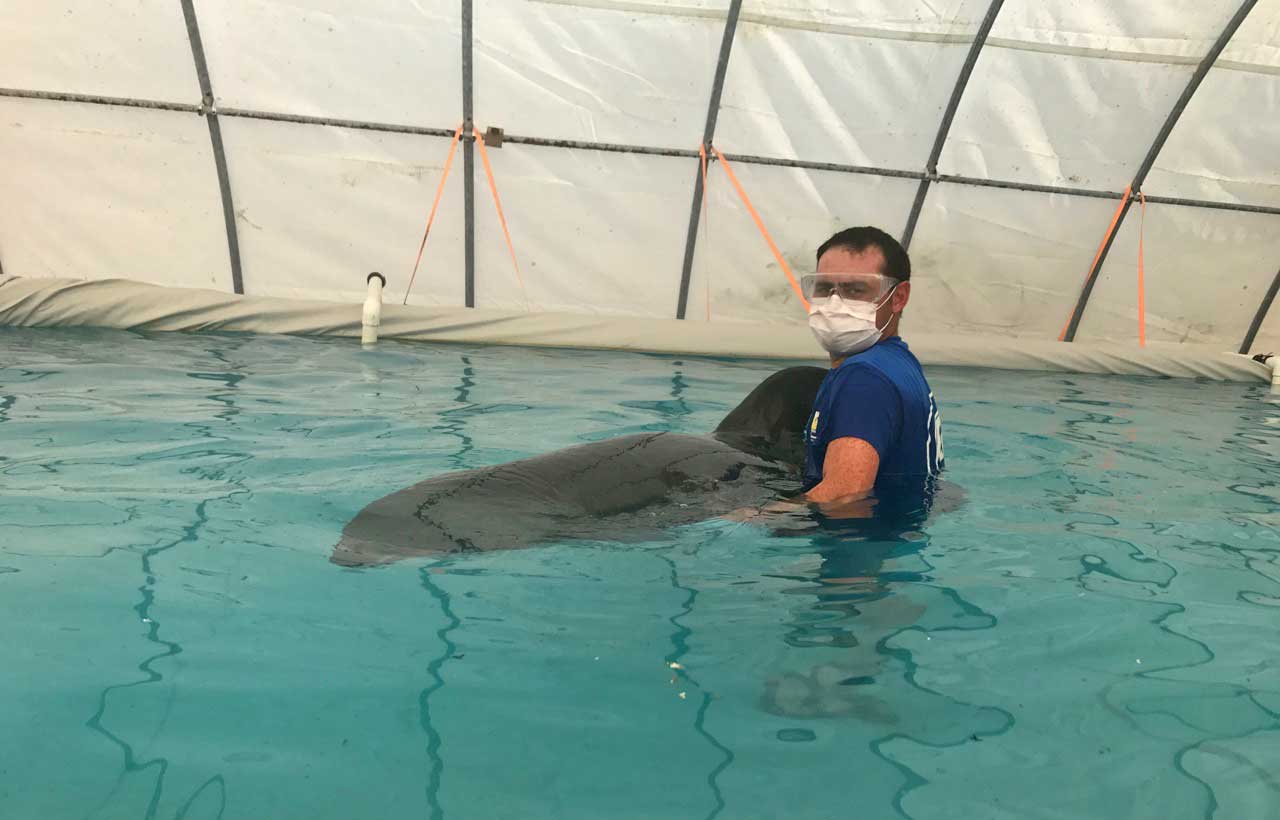
For the first time in the United States, a 350 pound male, melon headed whale was released into the wild. The Alabama Marine Mammal Stranding Network and the Orange Beach Wildlife team rescued the whale on September 2.
The ALMMSN team brought the whale to the Institute for Marine Mammal Studies (IMMS) in Gulfport, Mississippi for rehabilitation.
"The IMMS animal care and veterinary staff were initially concerned that the animal might not survive for the first 24 hours after its arrival," Veterinarian Dr. Debra Moore, veterinarian for both Mississippi and Alabama marine mammal stranding organizations said. "The whale was critically ill but persevered with around the clock care, which was needed for its first month of rehabilitation. During its entire three and a half months in rehabilitation at IMMS, it survived a variety of respiratory and digestive medical conditions that could have ended its life. Medical and dietary care provided by the IMMS team lead by president Dr. Moby Solangi, however, helped the whale recover from each crisis and it ultimately survived to be successfully returned to its natural habitat."

Dr. Moore said based on previous stranding response records reported to NOAA only 19 of 103 stranded melon headed whales were rehabilitated. Of those 19, one survived in Texas for seven months and the other, a 2-3 month old calf, was provided permanent care for six years. None were released back into the wild.
The decision to release the Orange Beach rescued melon headed whale was collectively made by IMMS, NOAA, the Mississippi Department of Marine Resources, and a panel of marine mammal veterinary experts from around the country.
"This release marks the first time a melon headed whale has ever been returned to the wild and was a momentous occasion for all participants involved in the rescue, rehabilitation, and release of this animal," Dr. Moore said. "The transport of the whale back 'home' to the Gulf was smooth and he traveled exceptionally well on the boat trip that took about four and a half hours."
The melon headed whale, named Melvin by the DISL team, was released on December 14 with a satellite tag.
"Melvin began to orient and swim within a few minutes of his release," Dr. Moor said. "It began diving and ate as well once it entered the water."
All participants at the release were excited to see this animal return “home” and noted that it marked a remarkable interagency collaboration between both Alabama and Mississippi Stranding Network teams.